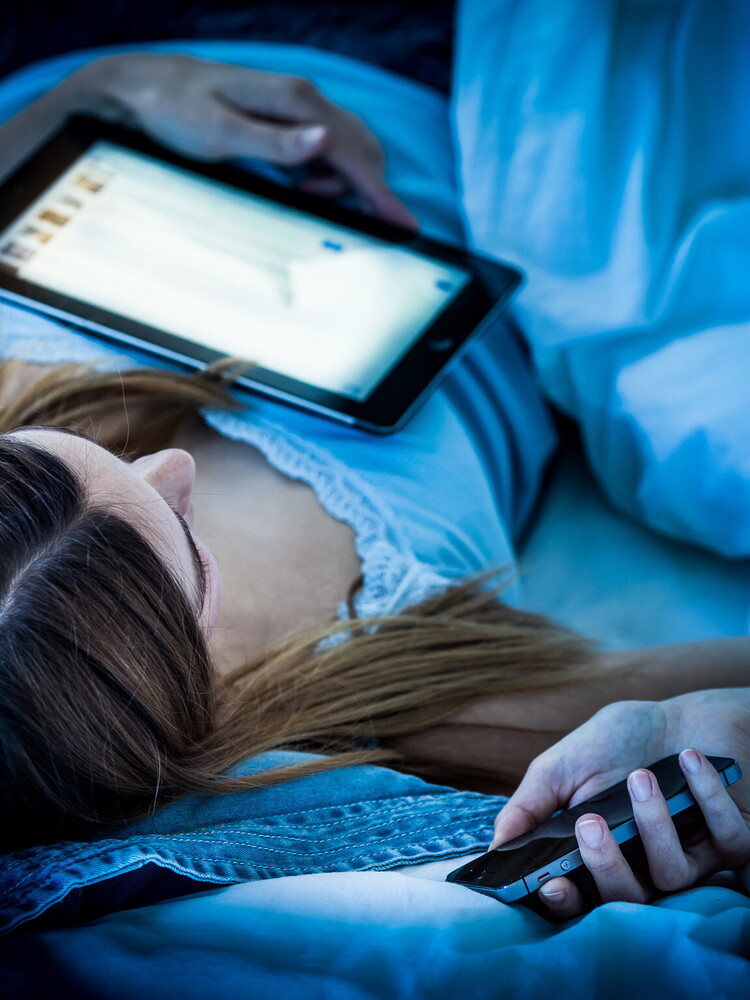From the moment you wake up until your head finally touches the pillow,
Notifications are constantly received from their devices. According to research, this habit leads Italians to be frequently distracted and stressed, until the moment they go to bed. The pressure to stay connected is constant and over a quarter of the Italians (28%) receives notifications until the time to go to sleep, on average 23:26.
On the occasion of theWorld disconnection daythat the7 Marzothe research wanted by Amazon reveals that the limit time within which Italians should turn off the notifications and devote themselves to a relaxing activity is 22:26, so as to favor a good restaurateur sleep. TheNeuroscientist Mark WilliamsIt suggests “spending at least one hour free from notifications in the evening before going to sleep, to give the mind the time to relax”.
You receive notifications from smartphones, smartwatches, laptops and tablets throughout the day, bringing more than half of the people (59%) to feel frequently distracted. “When you hear the sound of a notification or the vibration of the smartphone is felt, The brain interprets it as something that requires immediate attentionkeeping a constant state of alert, “explains Williams.” Every time attention is deviated by a notification, 60-90 seconds are needed to refract on the task that was originally carrying out. These interruptions subtract time, leading to less efficiency “.
We distract ourselves not only when you see a notification appear: over three quarters of the Italians (91%) check the devices every hour in the hope of having received a new one, some up a 80 volte. A behavior similar to an addiction, says Williams: “Notifications can trigger the release of dopamine, leading people to compulsively control their smartphones waiting to receive a new one”.
These notifications that create dependence negatively impact on concentration, bringing 83% of Italians to feel stressed in the evening. More than a quarter (30%) then struggles to relax, then watch TV (71%), listen to music (37%) and reads books (34%) in an attempt to disconnect.
The time dedicated to evening relaxation is not without interruptions, since almost half of the Italians (43%) is still frequently distracted by the incoming notifications. Once in bed, almost three quarters (74%) admit that they fall asleep later than expected because of the control of notifications.
Here are Williams’ advice to help disconnect and relax at the end of the day:
- At least an hour before going to sleep, turn off laptop, tablet, computers and put the smartphone in rest mode, keeping the various devices away from the view, so as to avoid distractions and alert the state of alert.
- Adjust the settings of the notifications of the device by limiting them when you are in the bedroom. If you use the phone as a wake up, the alternative can be opt for a digital alarm clock. The place where you sleep should be dark, fresh, silent and devoid of distractions.
- Avoid caffeine, nicotine and alcohol before bed: they are all stimulating that interfere with adequate sleep.
- Before going to bed, write some notes on a diary or a notebook. What was done during the day, what went well and what went wrong, what could be done differently next time or what you would like to make the next day. This will help slow down and start the relaxation process.
- Reading is a great way to spend the last hour before sleeping, but not through devices that receive and send notifications.
